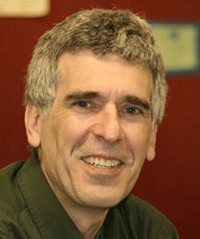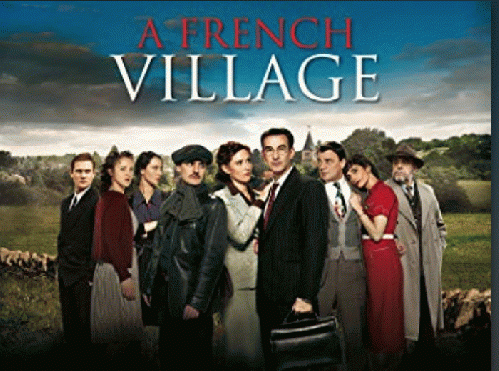The most widely acclaimed TV series ever about the Nazi occupation of France is a relentless epic with little use for the familiar images of craven collaborators and selfless resisters. Un village franà �ais focuses on a fictional rural community that endures a tightening vise of German control for more than four years. The villagers live far away from black-and-white tropes. Even a ruthless Nazi official eludes the usual monochrome. The humans are all too human.
Un village averaged about 3.4 million French viewers during 72 episodes between 2009 and 2017. The dramatic series has also aired in upward of 40 countries, according to producers. Now gaining an audience in the United States via online platforms (under its English title A French Village), Un village is far afield from routine US media assumptions about bright lines between good and evil.
From the start of the series, when German troops suddenly arrive in mid-June 1940, the choices for locals are bad and keep getting worse. Un village is riddled with dilemmas that often go from painful to insoluble. The drama's creators aimed "to bring some shades of grey to the public memory of World War 2 in France," historian Marjolaine Boutet wrote; they had "the ambition to evoke an empathetic response from the audience towards every character"--while bypassing the timeworn formula of "collaborators as villains and Resistance fighters as heroes." Based on solid historical research, the poignant and often heartbreaking script comes alive with a superb ensemble cast in more than 20 major roles. The result is a dramatic tour de force that undermines Manichean views of the world.
After watching the 63 hours of Un village franà �ais, I was eager to interview its head scriptwriter, Fre'de'ric Krivine. We met on a rainy Paris morning at a cafe' not far from Place de la Re'publique. My first question: "How and why did you want to make a Nazi human?"
Krivine, who is Jewish, responded with a fleeting quip--"It's a good Jewish story"--and quickly turned serious. "A good show, especially a show to last for a while, needs to have characters who are really representative of the complexity of human nature," he said. "Otherwise, you mustn't use them." Nazis, he went on, "were human beings, with desires and problems," at the same time that "in another point of view, they were kind of monsters."
The main Nazi character in Un village is a powerful intelligence officer whose romantic charm and steely wit coexist with willingness to torture and execute if necessary to get the job done. I asked Krivine whether there was a message in the mixture.
"People who do horrible things are human beings," he said. "We have to find a way to talk about them without hiding what they do and without treating them as nonhuman people, nonhuman beings. They are human beings; like us they belong to, we are in, the same species, human species". It's humans who kill now everywhere in the world where people are killed. It's because they are human beings that we have problems--because if they were just extraterrestrial or monsters we could just erase them."
Un village is an intricate counterpoint to Marcel Ophuls's landmark 1969 documentary The Sorrow and the Pity, which left many viewers with the broad-brush impression that occupied France was virtually a nation of collaborators, except for a few heroes. Krivine balks at such sweeping categories. In his script, some of the resisters are unable to resist their own egotism, opportunism, dogmatism, or lethally displaced rage. The purpose of the plot points is to engender not cynicism but realism.
Overall, Krivine commented, most people are apt to remain bystanders. In the case of wartime France, an overwhelming majority of the population were neither resisters nor collaborators and didn't do anything, "bad or good." (Meanwhile, many more French citizens cooperated with the occupiers than resisted them.) When I asked about human tendencies to go along with evils, Krivine replied that "it's a very complex matter," and then swiftly reframed my question this way: "Of what is made indifference, and what are the consequences of indifference?"
Krivine brought up two current examples. He pointed out that several million people have died of AIDS in sub-Saharan Africa over the past decade--yet life-saving medicines exist and could be delivered for use in a far-reaching program. "But we don't do it." Krivine then spoke of how snipers in the Israeli military had recently been killing Palestinians along the Gaza border. Yet scant opposition came from the Israeli public.
When I remarked that such cases are forms of collaboration by the majority, Krivine demurred. "I don't feel it as collaboration," he said. "But it's not nothing." When I suggested the word "complicity," he differed again, and said: "People don't react when they don't have the horror in their eyes."






